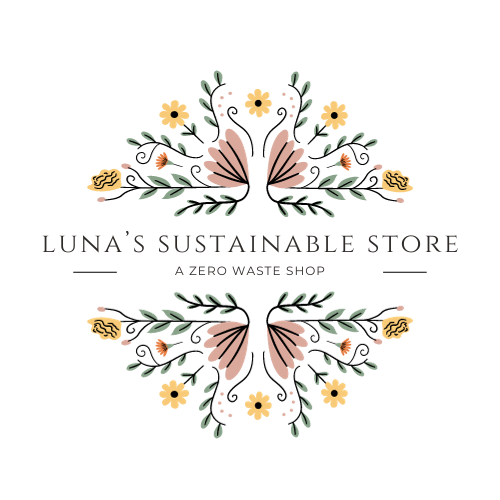Why Go Sustainable?
With the growing popularity of documentaries such as "Our Planet", "The True Cost", and "An Inconvenient Truth", it becomes more and more clear that we all need to be a bit more conscious about our choices and their impact on both the environment, economy, and community. Making small, sustainable changes in the home can make the world of a difference. When you choose eco-friendly alternatives, you're not just helping the planet- you're also investing in your wallet, your community, and your health. Let's explore why making the switch to sustainable is a smart one for you and the world around you.
Saving Money!

Sustainable products may have a higher upfront cost, but they save you money in the long term. For example, our unpaper towels replace disposable paper towels, lasting for years with proper care. Our wool dryer balls replace chemical-laden dryer sheets and fabric softeners and again will last for years with proper care. Same with our fun beeswax wraps!
Let's take a closer look at some paper towel usage. According to a study conducted by the EPA in 2021, the average American family uses about 2,400 paper towels per year. A roll of paper towels typically cost between $1-$2. It is estimated that an American household will go through 50-100 rolls of paper towels in a year. This means families are spending $50-$200 a year on paper towels alone. Replacing these paper towels with our unpaper towels pay for themselves in less than a year! Not to mention, they look much better than any paper towel you'll find on the shelves.
How about dryer sheets? According to study data from Statista, an average household will use 13 boxes of dryer sheets every year. On the low end, the cost of a box of dryer sheets is $3. $7 on the higher end. This means that an average US household will spend $39-91 a year on dryer sheets alone. Replacing these single-use dryer sheets with wool dryer balls that can last for 1,000+ loads of laundry (approximately 2-3 years) will have your wallet thanking you.
Lastly, plastic wraps. The average American family uses about 12-24 rolls of plastic wrap a year. Again the prices of plastic wrap vary, but let's say a roll of plastic wrap is $6. The average American home is paying $36-$144 a year on plastic wrap. One beeswax wrap can last for 1-2 years!
Collectively, if you were to switch from paper towels, dryer sheets, and plastic wraps to unpaper towels, wool dryer balls, and beeswax wraps you'd save anywhere between $125-435 a year! Make the switch today.
Supporting the Economy!

Sustainable products often support local and small-scale artisans, businesses, farms, and family owned businesses. By purchasing eco-friendly goods, you're contributing to ethical production practices and the growth of circular economy. Many sustainable products are designed with longevity in mind, which supports the production of high-quality, locally made goods over cheap, mass-produced alternatives.
At the same time, by supporting eco-friendly companies you're encouraging more businesses to embrace sustainable practices, ultimately helping create a positive ripple effect that benefits communities, economies, and the planet.
Health & Home!

Many of the everyday products the typical American family use are filled with chemicals and toxins that can harm both our health and the environment. For example, synthetic dryer sheets, cleaning cloths, and plastic wrapped products often contain harmful chemicals that can linger in your home or wash down the drain contaminating the water systems.
Our products like beeswax wraps and Swedish dish cloths are made of natural, non-toxic materials, giving you peace of mind and a healthier home. Plus, many of these alternatives are antimicrobial and naturally odor-resistant making them not only better for the planet, but also better for you!
Make a Lasting Impact!

Every small action counts when it comes to sustainability. Choosing products that are reusable, biodegradable, and responsibly source creates a ripple effect- reducing waste, saving resources, and supporting a more sustainable future for generations to come.
By making a conscious decision to switch to sustainable, you're helping create a culture of sustainability that's good for the planet, good for people, and good for your wallet!
